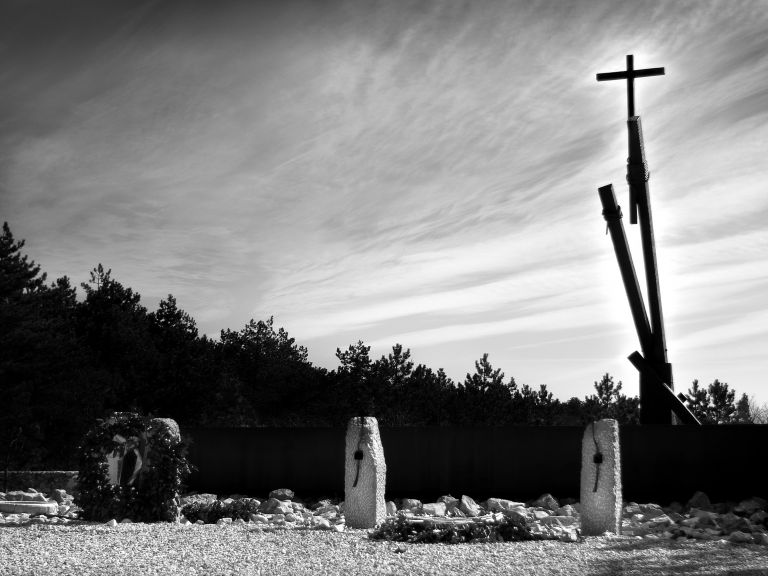Project Detail: The Julian-Dalmatian question. The denied truth.
Contest:
Women photographers exhibition 2016
Brand:
LuganoPhotoDays
Author:
ANGELA VARRICCHIO
Project Info
The Julian-Dalmatian question. The denied truth.
The Julian-Dalmatian question concerns the events of the Julian-Dalmatian people who lived in Friuli-Venezia Giulia territories, included the cities of North-east Italy, Trieste and Gorizia, a part of actual Croatia and Fiume, Istria and Dalmatia, ex Italian territories.
This question can be divided in three fondamental lines: the “infoibamento”, the internment of prisoniers in gulags and the exodus of Julian-Dalmatian people. 8 september 1943 is the beginning of violences escalation in Istria, Fiume and Dalmatia by Slavonic and some Italian communist partisans towards Italian fascists or presumed fastists; in this day, the notice of armistice, signed by Italy, spread and broke definitely the political power of Mussolini. Probably to revenge the political and civil persecutions and repressions, suffering by Slavonic people in Istria and Fiume in 1922 during the Fascism and probably to expand hegemony to West, the Yugoslavian communist leader Josip Broz, above-mentioned as Tito, directed his secret police O.Z.N.A in order to sow violences, dead and distruction in many territories and cities of Istria, Fiume and Dalmatia.
“Infoibamento”. In this project, you can find the Basovizza foiba, a monument only in Italy, but not in Croatia or Slovenia. The term “infoibamento” derives from “foiba”, with which it is indicated a rocky sinkhole, a natural chasm created in the mountains by the time, deep more than 80 mt., very spread in Istria and Friuli-Venezia Giulia. The “infoibamento” is the act of throwing one or more people into a foiba. A high number of Julian-Dalmatian people were captured by some communist partisans after the fall of Facism, condemned to death without a fair process and, after physical and psychological violences, they were undressed. Then, joining the first of line to other three or four people with steel, they were token to foibes. In order to economize bullets, at the foiba the partisans of Tito shot at head’s first of line, who falling down, dragged the others still alive.
Internament in gulags. Goli Otok is one of the most infamous working camp in which some Julian-Dalmatians were imprisoned. Located in Croatia, this communist gulag (working camp) was theater of different tortures. One of this was “the pole”, which consisted in binding a prisonier with a steel for two or three hours to a wooden pole that immobilized him and lifted him off the ground so much that the prisonier lacerated his flesh, losing permanently or at the moment the use of his arms. The second was “the triangle”, which consistedin obliging a prisonier to be standing in a little space for a long time. The third was “the pit”, which consisted in obliging a prisonier to be standing in a pit big so as his body, without the possibility to bend arms and legs. The fourth was “the stroj”, an human tunnel throught which communist partisans obliged to pass the new prisoner just arrived, who was cudgelled and insulted. Finally, there was the "bojkot”, a forced solitary to which the opposers to Tito power were forced. The majority of this project focuses on Goli Otok working camp.
This reportage has been created to trace the first lines of a collective imagination of the Julian-Dalmatian question, as it has been done not so long ago for the Jewish Shoa, the climax of Nazi insanity. The necessity to “make visible” is then equal to “make known”; for this reason, the reportage tries to trace an overall view that can be representative of the three aspects of the Julian-Dalmatian question: the “foibe”, the gulags and the exodus.
It is necessary to let Italians and every people and nation know about the brutalities, the violence and the blood that Julian-Dalmatian population suffered. The Istrian, Fiuman and Dalmatian victims of the events still were Italian who died in defence of the Italian spirit of their land and Italy lost them as sons. They cried and suffered for Italy and now, with this reportage, Italy is crying and suffering for them. Because God is dead not only in the Nazi camps but also in the communist extermination camps. Because there are no Right dead or Left dead, Just dead or Unjust dead. Every man tortured and killed for a political idea, religion or ethnic group is a martyr whom each nation and man has to remember.
A memory which is a warning to the next generations, in order that such brutalities never happen again, when a father buries his son, the young wife his husband, and the fiancée his beloved. This book is dedicated to the Istrian, Fiuman and Dalmatian people to give honour to their memory and to everybody who paid his life for freedom of thought.














